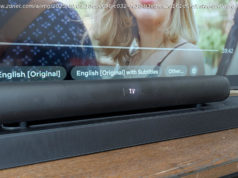Your guide to the best free antivirus programs that will protect Windows and Android devices.
Every day new malware attacks of various descriptions target Windows PCs. Some are scarier than others, but the WannaCry ransomware attack that hit huge organisations including the NHS earlier this year left many people more uncomfortable with their PC security than most. A second big ransomware attack – Petya – hit the headlines in late June.
It costs nothing to ensure your software is patched and up to date, and installing a decent antivirus package needn’t cost you a penny either. So there’s no excuse for not having antivirus software on your PC.
The good thing about installing a free product from one of the leading security companies is that they use the same ‚engine‘ as their paid-for products.
You do get more if you buy an internet security suite, but what you get in the free version is stripped down package with a smaller feature set. Don’t expect to get extras such as spam filtering, improved firewalls, parental controls, password managers and support for mobile devices, although some of this can be had for free.
The free offerings from Avast, AVG, Avira, Bitdefender and Panda all offer basic antivirus and anti-malware protection, giving you a good chance to keep your PC free of threats which could lose you data and take a lot of time to put right.
Since testing antivirus software with real malware requires a lot of time and effort, not to mention extremely specialist knowledge, we don’t do this ourselves. Instead, we use the latest results from several well-respected independent test houses, including SE Labs, AV-test.org and AV Comparatives .
Yes it is. But you may trade off some privacy. For example, AVG’s privacy policy, showing what rights it takes over your personal and non-personal information when you download and use its free product, caused quite a furore when it was published. You grant it the right to share some of your (non-personal) information to third parties, which may include advertisers.
Right now, however, AVG is not sharing any data with third parties. It merely reserves the right to do so. Find out how to get Kaspersky Free.
Some have said ‘Well, this is just AVG being more upfront about its policy; they all do it’ , so we checked at what each company says in its privacy policy. They’ re not all the same: some require you to opt out to prevent sharing and some ask you to opt in, but will respect your decision if you don’ t, and some don’ t share your information at all with third parties.
Best is Bitdefender, which claims not to share information with anybody outside its own company or subsidiaries. We think this is as it should be with a security product, but second-best is the assumption not to share, with an opt-in, should you want to receive ‘relevant’ offers. This is what Avast and Avira do. Panda does the same as AVG, requiring you to specifically unsubscribe to avoid security-related emails.
Antivirus software is designed to prevent damaging programs from infecting your PC and laptop. All the free products here do that, but not all are as effective as others. As a secondary task, though, the full paid-for products should reduce the amount of unwanted advertising and offers that get through to you, and they usually offer quite a few other features as we mentioned above.
But without further ado, here are reviews of the leading free AV programs – you really can get something for nothing.






